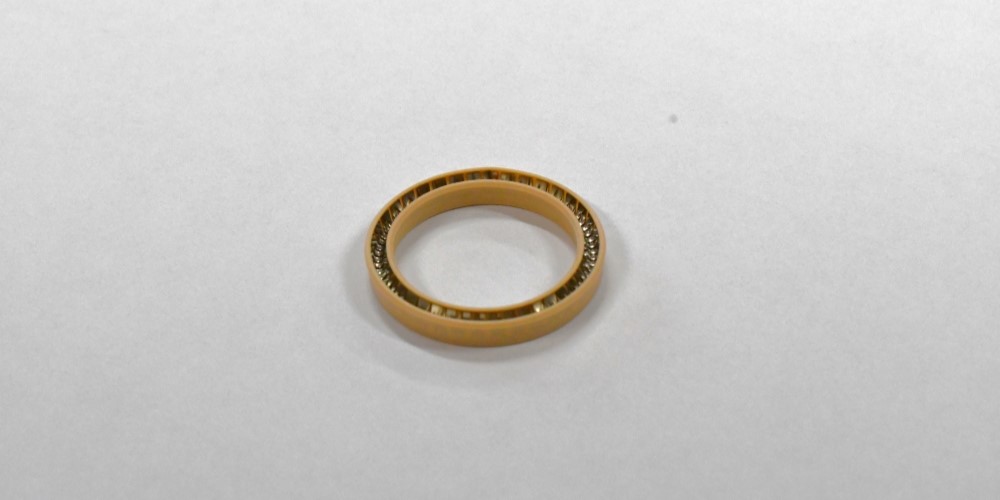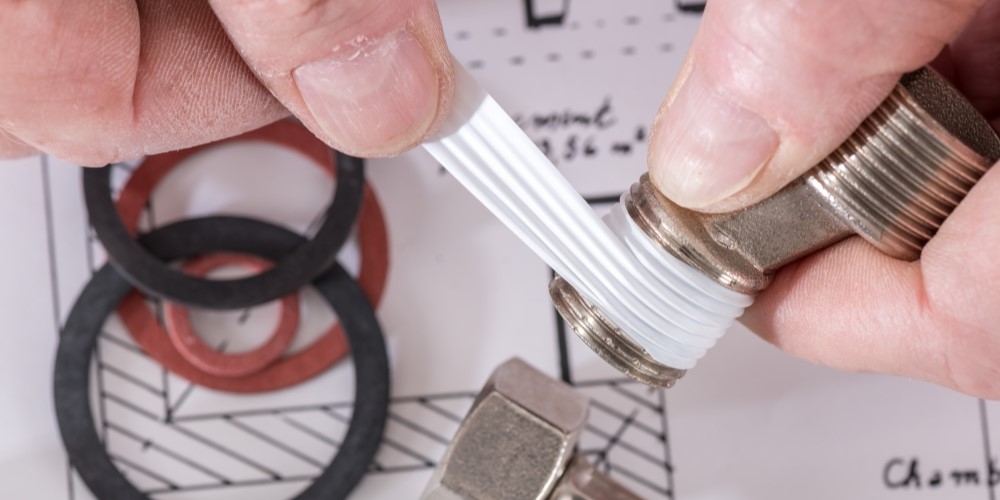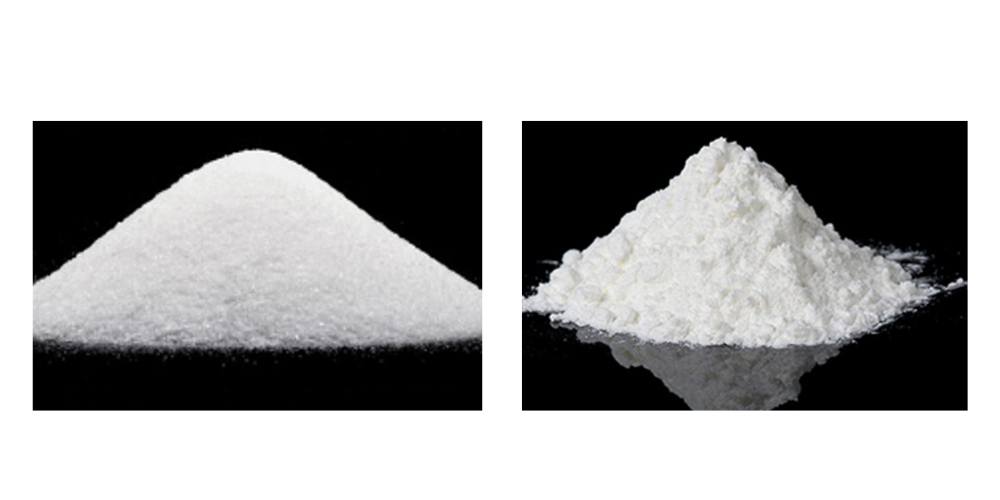PTFE, also known as Teflon™, is a type of material that is commonly used throughout the world. It is perhaps most famous for being used in non-stick cookware but has many other uses that are especially effective in sealing. PTFE is inert with very low friction properties making it ideal for a variety of applications.
PTFE is an incredibly useful material and you'll find it in many of the seals that PSP Seals offers. Let's learn more about PTFE and what makes this 20th century material so useful!
What is PTFE?
The formal chemical name of PTFE is polytetrafluoroethylene so you can see why we usually just say PTFE. While a plastic molecule contains a carbon chain with hydrogen atoms attached, the hydrogen atoms are replaced with fluorine atoms in a polytetrafluoroethylene structure. This dramatically changes the properties of the material to provide unique properties.
PTFE was accidentally discovered in 1938 by Roy Plunkett. An early use was in the Manhattan Project as a material to coat valves and seals used in the pipes holding highly reactive uranium at the enrichment plant in Oak Ridge, Tennessee.
PTFE was so useful against highly reactive uranium because it is chemically inert. The inert nature of PTFE allows it to be used in many applications because the material will still do its job without corrupting. It is also non-toxic and non-stick and that's why we see PTFE used a lot in cookware and in the food industry. Other characteristics of PTFE include
high-temperature resistance, high electrical resistance, resistance to weather and UV light, hydrophobic, resistance to corrosion, and extreme chemical resistance.
PTFE General Uses
You'll find PTFE commonly in your own home as a coating for your pans since the non-stick characteristics are great for sticky foods. Plumber's tape is also made of PTFE, showcasing the excellent sealing properties of PTFE.
In hydraulic & pneumatic sealing, PTFE is especially useful thanks to its low friction and high extrusion resistance. PTFE seals can slide easily in cylinders or other applications with their self-lubricating properties with minimal seal wear, and can be enhanced with fillers for even more wear resistance.
In the chemical industry, PTFE can be used to make different products, from gaskets to vessel linings and chemical tanks due to its inert corrosion-resistant properties. PTFE is also widely used in high-temperature applications, from fire-critical applications to terminal insulation on heating elements and jet engines, UV lamps, and external aircraft fittings.
PTFE material is ideal for use in medical applications and for the production of internal and external life-saving equipment such as catheters, bio-containment vessels, syringes, and sutures since it is non-toxic. This unique fluoropolymer is also perfect for electrical insulation and the protection of electronic components.
You will find PTFE in many products offered by PSP Seals, most commonly for linear and rotary applications. Typical offerings are backup rings and spring-energized or elastomer-energized seals. As PTFE is a thermoplastic – a non-elastic material – it will not return to its original shape after being deformed. Therefore, seals are typically energized with a spring or O-ring to create and maintain the forces necessary to seal against the hardware during operation.
PTFE Processing
While PTFE is a fantastic material, it's not perfect. The main disadvantage of PTFE is that it does not melt when heated and is more difficult to process. Unconventional techniques are needed to mold, extrude, sinter, and weld PTFE. There are two main types of raw PTFE, free flow and non-free flow.

- Free Flow PTFE (pictured on left) is designed for compression, semi-automatic, or isostatic molding and offers improved handling and better productivity due to not becoming agglomerated during transportation. Free Flow enables thin wall molds to be filled more easily.
- Non-Free Flow PTFE (pictured on right) is designed for compression molding and offers advantages when hand-filling molds with thick walls. Non-Free Flow PTFE offers better physical properties than Free Flow.
PTFE Fillers
PTFE without any fillers is known as virgin PTFE. Virgin PTFE is required to be new, and not reprocessed. Reprocessed PTFE is recycled PTFE, where properties are not as consistent as Virgin grade and may contain impurities. For light-duty, and mostly static applications, Virgin PTFE will suffice. However, in most cases, a filler material is added to the raw PTFE to improve some aspect of the seal's performance. Here are a few common fillers you'll find with PTFE and why they are used:
- Bronze: Improved wear, chemical resistance, and thermal conductivity. Typically used in piston rings, seal rings, and bearings.
- Carbon: Improved wear resistance and thermal conductivity. Excellent choice for applications like seal rings and gaskets, particularly in dynamic sealing applications.
- Graphite: Improved wear and chemical resistance. Graphite particles are smooth and layered, helping reduce the coefficient of friction and improve wear properties. Ideal for bearings, seals, and piston rings.
- Carbon Fiber: Improved wear and extrusion resistance. Ideal for dynamic sealing applications where resistance to deformation and wear are critical.
- Glass Fiber: Improved wear and extrusion resistance. Leads to better dimensional stability and resistance to deformation under load.
- Molybdenum Disulfide (MoS2): Improved wear resistance and reduced friction. MoS2 is generally used along with other fillers such as Bronze or Carbon, and imparts excellent dry lubricating properties. This makes it a suitable choice for applications requiring low friction like mechanical seals, thrust washers, and slide bearings.
A few other fillers include minerals, polymide, aromatic polyester, polyphenylene sulfide, stainless steel, PEEK, calcium flouride, mica, and wollastonite. It seems as if the possibilities are almost endless to get you the sealing properties you need!
Shop for PTFE Seals with PSP Seals
PSP Seals is your go-to destination for virgin and filled PTFE. We are an authorized distributor for some of the most recognizable names in sealing and have a dedicated team ready to help you find what you need. Shop our online store with a broad range of products or contact us today to work with us one-on-one.




